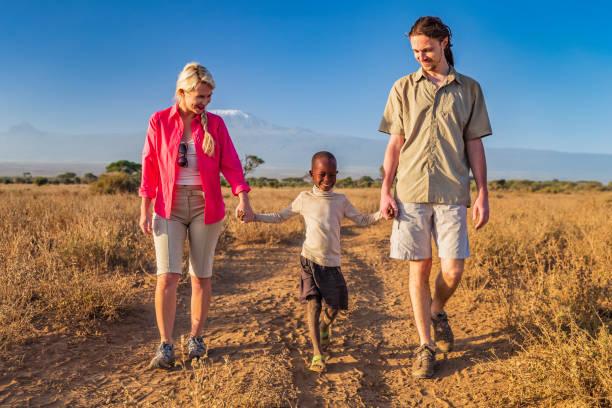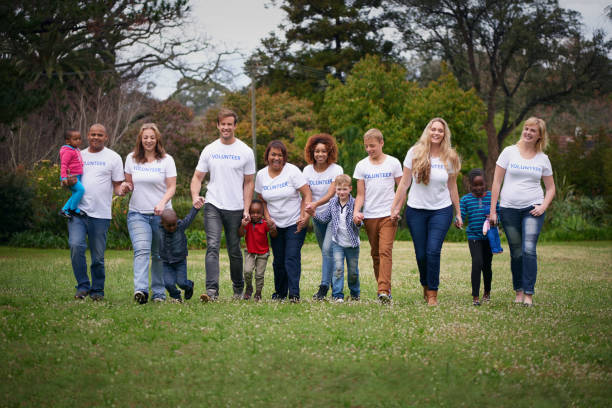Why Are Turtles Disappearing? Top Reasons for Their Decline.
Turtles are primitive reptiles and among the oldest creatures still extant on our planet. They have survived for more than 200 million years.

Volunteering in Africa can be a life-changing experience, allowing individuals to make a meaningful impact while immersing themselves in diverse cultures and environments. However, one crucial aspect that prospective volunteers often ponder is the cost involved. Understanding the financial implications of volunteering in Africa is essential for planning a fulfilling and financially manageable experience. In this comprehensive guide, we delve into the various factors influencing the cost of volunteering in Africa, ranging from program fees to additional expenses like travel insurance and vaccinations.
The cost of volunteering in Africa can vary significantly depending on factors such as the length of the program, location, and the organisation facilitating the volunteer opportunity. On average, program costs typically range from $130 to $2,000 per month. These fees typically cover essential aspects such as accommodation, meals, orientation, and project support. However, it's essential to note that the level of support and amenities included in these costs can vary between organisations.

Length of Program:
Longer volunteer programs often entail lower monthly costs compared to shorter-term commitments. Organisations may offer discounted rates for volunteers committing to extended durations, reflecting the economies of scale and the desire for sustained involvement in projects.
Location:
The cost of living varies across different regions of Africa. Volunteer programs located in urban centres or tourist hubs may have higher program fees due to increased expenses associated with accommodation and amenities. Conversely, programs situated in rural areas or developing regions may offer more affordable options.
Organisational Structure:
The structure and nature of the organisation facilitating the volunteer program can also influence costs. Established NGOs or volunteer organisations with robust support systems and infrastructure may charge higher fees to cover operational expenses and ensure quality services. Conversely, grassroots initiatives or community-led projects may offer more budget-friendly options with lower overhead costs.
Scope of Services:
The extent of services included in the program fees can vary significantly. Some organisations offer comprehensive packages that encompass accommodation, meals, transportation, and project support, while others may provide a more basic level of support, requiring volunteers to cover additional expenses independently.
Additional Expenses to Consider:
While program fees cover essential aspects of volunteering, volunteers should also consider additional expenses to ensure they adequately budget for their trip. These expenses may include:
Flights:
The cost of airfare to and from Africa can be a significant expense for volunteers, particularly those travelling from distant locations. Volunteers should research and compare flight prices in advance to secure the best deals and consider flexible travel dates to minimise costs. Additionally, volunteers should budget for transportation within Africa, as domestic travel expenses can add up over the course of the volunteer placement.
Travel Insurance:
Travel insurance is essential for volunteers to protect themselves against unforeseen circumstances such as medical emergencies, trip cancellations, or lost luggage. The cost of travel insurance will vary depending on factors such as coverage limits, duration of coverage, and the volunteer's age and health status. While travel insurance may represent an additional expense, it provides peace of mind and financial protection in the event of emergencies during the volunteer experience.
Vaccinations and Medical Expenses:
Volunteers may require vaccinations or medical consultations before travelling to Africa to ensure they are adequately protected against prevalent diseases. The cost of vaccinations and medical expenses can vary depending on individual health needs and the recommendations of healthcare professionals. Volunteers should consult with their healthcare provider or a travel medicine specialist to determine which vaccinations are necessary and budget accordingly for any associated costs.
Visa Fees:
Depending on the country of destination, volunteers may be required to obtain a visa, which may entail additional fees. It's essential to research visa requirements and associated costs well in advance of travelling to ensure compliance with immigration regulations. Volunteers should factor visa fees into their budget and plan accordingly to avoid any delays or complications during their volunteer placement.
Personal Expenses:
Volunteers should budget for personal expenses such as communication (e.g., SIM cards, internet access), leisure activities, and souvenirs. While these costs may vary depending on individual preferences and spending habits, it's important to allocate funds for discretionary spending during the volunteer experience. Setting aside a discretionary budget allows volunteers to explore the local culture, engage in recreational activities, and support local businesses while volunteering in Africa.

Accommodation:
The type of accommodation provided by volunteer programs can vary significantly, ranging from shared dormitories to homestays or volunteer houses. Programs offering more luxurious accommodations or private rooms may have higher fees compared to those providing basic lodging options. Volunteers should consider their preferences and comfort levels when assessing program costs related to accommodation.
Meals:
Many volunteer programs include meals as part of the package, typically providing breakfast, lunch, and dinner. However, the quality and variety of meals offered can vary depending on the program. Volunteers with dietary restrictions or specific culinary preferences should inquire about meal options and whether additional expenses may be incurred for special dietary needs.
Orientation and Support:
Program fees often cover orientation sessions designed to familiarise volunteers with the local culture, customs, and project objectives. Additionally, organisations may provide ongoing support and guidance throughout the volunteer experience, including assistance with project placement, language interpretation, and logistical arrangements. Volunteers should assess the comprehensiveness of orientation and support services when evaluating program costs.
Project Support:
The portion of program fees allocated to project support contributes to the implementation and sustainability of volunteer projects in local communities. This may include funding for materials, equipment, or salaries for local staff involved in project coordination and management. Understanding how program fees contribute to project support can provide volunteers with insight into the impact of their financial contributions.
While volunteering in Africa can be a fulfilling and enriching experience, it's understandable that not everyone can afford to pay high program fees. The good news is that there are plenty of budget-friendly options available for those willing to do some research and flexibility.
Short-Term and Specialised Projects:
Some organisations offer shorter-term or specialised projects that come with lower or even no fees. These projects might range from a few weeks to a few months and often focus on specific areas such as healthcare, education, or conservation. While the duration may be shorter, the impact can still be significant, making these projects an attractive option for budget-conscious volunteers.
Local NGOs and Community Initiatives:
Consider volunteering with local NGOs or community initiatives, which may have lower overhead costs compared to larger international organisations. By working directly with communities, you can make a tangible difference while keeping costs to a minimum.
Volunteer Exchanges and Work-Trade Programs:
Some organisations facilitate volunteer exchanges or work-trade programs where volunteers exchange their time and skills for accommodation and meals. While these programs may not cover all expenses, they can significantly reduce the overall cost of volunteering.
Scholarships and Grants:
Many volunteer organisations offer scholarships or grants to support volunteers with limited financial resources. These opportunities may be merit-based, need-based, or tied to specific projects or initiatives. Volunteers should inquire about scholarship opportunities and eligibility criteria when researching volunteer programs.
Crowdfunding and Fundraising:
Crowdfunding platforms provide volunteers with a means to raise funds for their volunteer trip by soliciting donations from friends, family, and supporters. Creating a compelling fundraising campaign that highlights the volunteer's motivations, goals, and intended impact can help attract donors and generate financial support for the trip.

Now that you have a better understanding of the costs involved in volunteering in Africa, it's time to start planning your budget. Here are some steps to help you get started:
Research Volunteer Programs:
Take the time to research different volunteer programs, comparing their costs, services, and reviews. Look for programs that align with your interests, skills, and budget.
Create a Budget Spreadsheet:
List all the expenses you'll incur, including the program fee, flights, insurance, vaccinations, visa fees, and personal expenses. Be sure to account for any additional costs that may arise.
Seek Transparency:
Choose organisations that demonstrate transparency regarding program costs, allocation of funds, and impact assessment. Avoid organisations that are vague or non-disclosing about their financial practices, as this may indicate potential issues or mismanagement.
Consider Volunteer Reviews and Testimonials:
Reach out to past volunteers or seek testimonials online to gain insights into the volunteer experience, support provided by the organisation, and overall satisfaction with the program. Hearing firsthand accounts from other volunteers can help you make an informed decision and identify organisations that prioritise volunteer well-being and satisfaction.
Ask Questions:
Don't hesitate to ask questions and seek clarification from the organisation regarding any concerns or uncertainties you may have about the program or its costs. Organisations should be responsive and willing to address your inquiries, providing you with the information you need to make an informed decision about your volunteer experience.
Look for Ways to Save:
Explore ways to save money on flights, such as booking in advance or using travel rewards. Consider alternative accommodation options, such as hostels or homestays, to reduce costs. Look for discounts or scholarships offered by volunteer organisations.
Set Aside Emergency Funds:
It's essential to have some money set aside for emergencies or unexpected expenses. Aim to save at least 10-20% of your total budget for emergencies.
Keep Track of Your Spending:
Once you're in Africa, keep track of your spending to ensure you stay within your budget. Avoid unnecessary expenses and be mindful of your spending habits.
Volunteering in Africa can be a rewarding and life-changing experience, but it's essential to plan your budget carefully to ensure a financially manageable journey. By understanding the costs involved, exploring budget-friendly options, and planning your budget effectively, you can embark on your volunteer journey with confidence, knowing that you're making a positive impact while staying within your means. Remember, the true value of volunteering lies not in how much you spend, but in the difference you make in the lives of others.
So, are you ready to make a difference in Africa? With the right planning and budgeting, your volunteer journey awaits!
Software designer, founder, and amateur astronaut.
I’m Spencer, a software designer and entrepreneur based in New York City. I’m the founder and CEO of Planetaria, where we develop technologies that empower regular people to explore space on their own terms.

Turtles are primitive reptiles and among the oldest creatures still extant on our planet. They have survived for more than 200 million years.
White sharks, popularly known as Carcharodon carcharias or great white sharks, represent one of the most distinctive forms of oceanic life.
Volunteering abroad is to volunteer a trip and experience gaining to use it as a positive change in communities, to acquire learning to unknown cultures, and the great self-growth process
Get weekly inspiration delivered right to your inbox!
Sign in with
Currency


